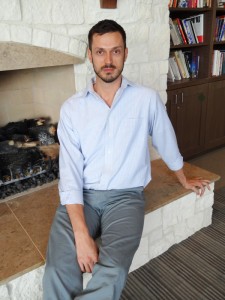Perfectly Shameless

Shame is so ingrained that most of us don’t even know we’ve got it—but you can learn to spot it, face it, and get free of it!
by LaVonne Carlson
No one is born with shame. Left entirely to ourselves, we’d never feel a scrap of it. Yet everyone comes to know it—that uncomfortable feeling that we’ve done something wrong or that we don’t belong. Shame begins as a two-person experience, usually when a parent or kid at school makes us feel like we’re “different”: We don’t belong. Then we take that experience away with us and start shaming ourselves.
Awareness of shame—as a block to becoming our true selves—is a hot topic in recent years. Leading experts in the world of psychotherapy have come to acknowledge the powerful effect that shame has on the lenses through which we see the world, whether through sexual orientation, gender, race, or any other viewpoint.
In the world of counseling, a series of workshops have developed that help people look at and deal with the subject of shame in their lives. In Houston, one of the professional counselors who has been trained to lead workshops on shame is Tony Aucoin, a therapist at The Council on Alcohol and Drugs Houston. Tony and two of his colleagues (one male and one female) have customized the shame workshop curriculum for Houston’s LGBTQ community. On September 24th, they will begin a weekly workshop that focuses on the topic of shame and homosexuality.
“Early on, most people are ashamed to be gay because they feel like they are different from everyone else,” says Tony, “but in all likelihood they also feel a degree of shame about putting this stigma on their family.” He explains that many people have worked to overcome this shame on a conscious level, but it still lurks at deeper levels that are harder to see.
Within the gay community, the shame intensifies. Many men feel that in order to be “gay” they are supposed to dance, do drugs, and be social butterflies. “If we don’t act and feel that way, it builds a cycle of feeling isolated and set apart, which then reinforces our shame about feeling separated from everybody else,” explains Tony.
But gay men often face a double dose of shame around living up to gender stereotypes. Males are expected to be macho and strong performers (earners, athletes, etc.); females are expected to have the perfect body image. The effort to fulfill both roles—macho achievements combined with a perfect body image—is unique to gay men. This mindset is officially called the “Adonis complex.”
Ironically, this view does not match reality for many gay men: Most do not have super buff bodies, and many dislike working out and prefer quieter pursuits. “The inner conflict about what is expected versus who we really are can cause a lot of shame—even if we aren’t fully aware of it,” adds Tony. “‘It affects who we hang out with, whether we feel accepted, and how we feel about ourselves.”
Remnants of shame appear in other ways, too. Many gays avoid becoming vocal or involved in politics or gay rights because, at some level, an undercurrent of shame remains. LGBTs may even avoid letting casual acquaintances know we’re gay—feeling it’s not worth it to put ourselves out there and risk rejection or a lack of understanding. Although we know better, our gut feeling is to avoid being judged. This subtle shame keeps us from sharing our true selves and really connecting to others.
What can we do about these deep levels of shame? Becoming more aware of the fear and shame is a first step to overcoming it. One place to process this is in a group that encourages sharing these feelings in safe surroundings. Reaching out to others, especially with other LGBTQs, helps us overcome the stigma of shame.
“Expressing ourselves and listening to others helps us realize that others feel the same way: No one is perfect—either physically, financially or emotionally,” says Tony. “Knowing this frees us from fears that we are too different from others.”
While Tony’s workshop (called Cultivating Connection with Pride) focuses specifically on shame and homosexuality, many groups can guide us in sharing our feelings, building trust, and practicing communication skills we can apply in daily life. The ability to open up and connect to others is key to self-healing—the kind that can make us truly shameless.
Additional information:
“Cultivating Connection with Pride” is an LGBTIQ perspective for identifying shame and building authentic connection to one’s self and others. Led by Tony Aucoin, Amanda Yoder, and John Dietrich, the eight-week workshop is held 6 – 8 p.m. on Mondays, September 24 – November 12, 2012 at the Council on Alcohol and Drugs Houston at 303 Jackson Hill Street. To register, contact TAucoin@council-houston.org or 281-200-9266.










